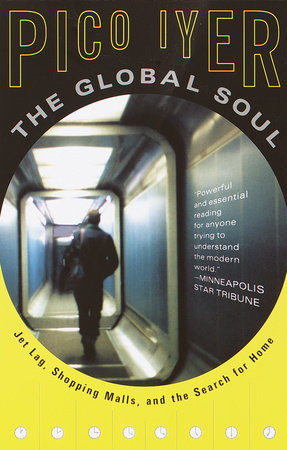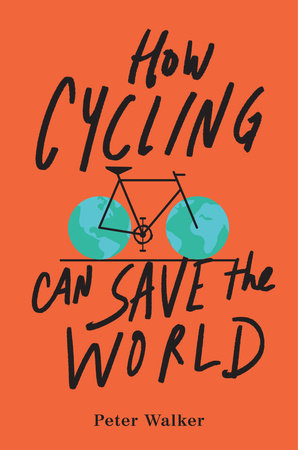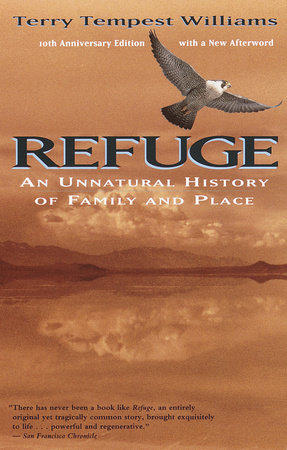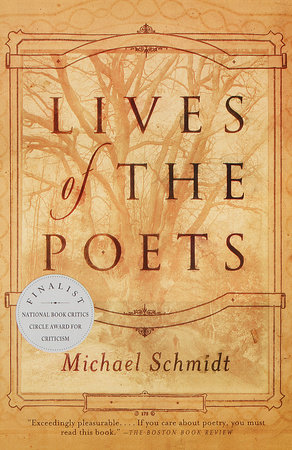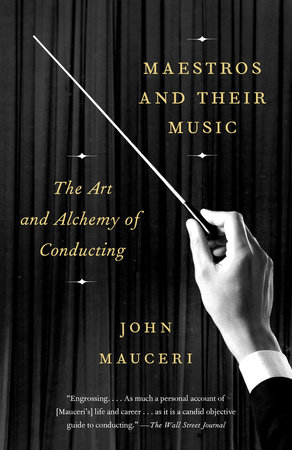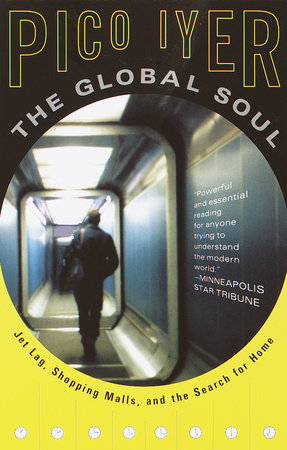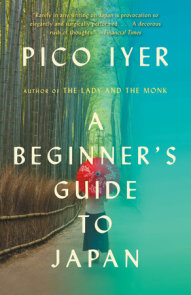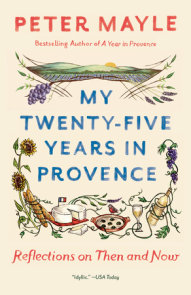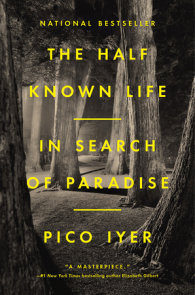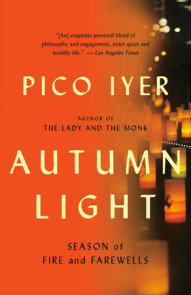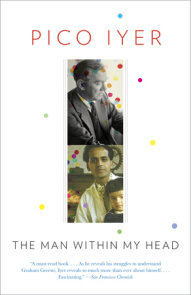Author Q&A
A CONVERSATION WITH PICO IYER, AUTHOR OF THE GLOBAL SOUL, AND MARTHA SHERRILL, AUTHOR OF THE BUDDHA FROM BROOKLYN
Q: What fuels Western fascination with Eastern philosophy?
Sherrill: Oh, so many things. It’s exotic. It’s ancient, it’s also new (to us), and it appears to be an antidote to modern life. Look at the smile on the Dalai Lama’s face. Why does he smile like that? Why does he seem so happy? We want to know. And we’ve grown a little tired of our own spiritual traditions. As Pico says, we can grow deaf to them.
Buddhism has a particularly romantic history in America, too, through its association with the Beats and writers like Salinger and Ginsburg. Just twenty years ago, it was something for elites in America-for bohos and artists and intellectuals and the rich. Zen especially. But I think that’s very much changing. The people in my book, with a couple exceptions, aren’t from fancy backgrounds. Most of them haven’t been to Europe-or had the pleasure of trekking through the Himalayas. They can’t afford trips like that. They are waiters and waitresses, nannies, housewives, personal trainers, programmers. They aren’t high brow. They just care about becoming better people, rising above their own personal dramas and devoting themselves to something larger. Buddhism seems to offer them something they haven’t experienced before. A new way of being spiritual.
Iyer: One thing that haunted me about Martha’s book was that she seemed to catch both the reasons why Buddhism is so attractive to the West (more and more so as our lives grow more scattered and confused) and the hidden costs of that attraction. Few of us can resist the spell of hypnotic chants, genuinely smiling monks and all the wisdom that, until a few years ago, was hidden from the rest of the world behind the High Himalayas; and to some extent, we’re all attracted by exoticism (even if it’s the exoticism of California as it looks to a Tibetan!). And yet, as Martha shows, many people are drawn to Buddhism out of a deep and sincere longing to lead a better life and to become a better person.
Q: Can Buddhism be compatible with a modern American lifestyle?
Iyer: Buddhism in L.A. is certain to be something radically different from Buddhism in Bhutan or Thailand or Sri Lanka. It has to be-it’s dealing with different needs, and speaking in a different language. But any of us can gain from a kind of spiritual technology, as some people call it, that has been refined and perfected and improved upon over centuries. Especially those people who are deaf to the same lessons in their own traditions.
In some ways, it seems to go back to some of the things I’ve always been interested in: what does it mean to be surrounded by foreigners even in your hometown? And how does foreignness at once seduce us and bewilder us and alarm us? The interaction between different cultures, many of which can’t begin to understand one another, is never simple, and yet it’s more and more a fact of life in almost every life.
When someone like Jetsunma translates ancient Buddhist terms into an American context, it’s bound to seem strange and perhaps confusing-just as the Christianity I see around me in Japan, where I live, doesn’t look at all like what I grew up with in the Church of England. Christianity in Japan or Vietnam-Buddhism in New York City or Paris-is sure to ask questions of its practicioners that it doesn’t ask "at home." Yet one of the strongest points of Buddhism is that it’s constantly asking us, as I see it, to separate surface from depth, and to cut through the level of distraction to what lies beneath. And even as its surfaces and forms are so alien to us in the West, its meanings-the need to be aware of death and suffering, the importance of finding focus and stillness, and, above all, perhaps, the importance of trying to exercise compassion in daily life-can be useful to anyone, whatever her religion (and even if she has no religion at all). As the Dalai Lama always says, religion and metaphysical thought are luxuries; the main things in daily life are just responsibility and kindness. And every time he’s approached by a new seeker, or fund-raiser, or movie-star or religious teacher, he says he just asks one thing: "What is their motivation ?"
Sherrill: Buddhism can be compatible with almost anything, partly because it’s so flexible and adaptable and easy-going. Buddhism flows into a new place and finds a new form. The customs change, the rituals, the relationship with the student and teacher, even the color of a monk’s robes change depending on what country and which tradition of Buddhism is being practiced. And I’m with Pico on this, Buddhism in L.A. is bound to be different from Buddhism in Thailand or even Buddhism in New York.
The fluid nature of Buddhism invites some chaos too. People would be more comfortable if it were a bit more fixed. Some read my book and said, "That’s not really Buddhism!" Well, tell the monks and nuns in Poolesville and Sedona that. Bringing a religion to a new place is a messy business-and Buddhism in this country is still largely up for grabs. I’m fascinated by the confusion caused by East meeting West, how a bunch of Americans try to become good Tibetan Buddhists and start a Dharma center with very little direction from the guys back in India. As for Jetsunma, who was enthroned as a lama at age 38, she once said to me: "This job didn’t come with an instruction manual." I think she might have been much happier if it had.
Q: How has globalism impacted spirituality?
Sherrill: The exotic isn’t as scary as it once was. The world is smaller now and our neighbors speak other languages, come from other cultures, eat food that smells different from our food.
Iyer: I write as someone who lives in a deeply Buddhist culture, near the ancient capital of Nara, in Japan, where the Buddha regularly shows up on TV sneezing (to advertise Contact cold tablets) or picking up a phone (to advertise a long-distance phone service). Traditional Buddhists can afford to be very matter-of-fact about the Buddha-more so than Buddhists in the West-partly because they’re more confident that Buddhism is a part of their lives, and of the cultures all around them.
Sherrill: And because of globalism, people feel more comfortable looking for new spiritual homes beyond the traditions they were born into. That poignant search for home that Pico writes so beautifully about-the yearning for a refuge from our hectic, confusing, hyper-communicating world-is what attracted lots of people to the temple that I wrote my book about. They were looking for a community, a family, a home. That’s what drew me to Poolesville too. I was looking for a place where I felt I belonged.
Q: How have Americans filled the spiritual voids in their modernized lives? How might they reconnect with their spirituality?
Iyer: To me the one benefit of a world that’s so accelerated and cluttered and mobile-so global in a word-is that it seems to excite a hunger for everything that’s the opposite: for stillness and silence and space. So my feeling-or my prejudice-is that more and more people are looking for ways to secede from the hyper-revved up world, to step off the Information Superhighway, and that more and more people these days are retreating to monasteries, trying to take long trips in the wilderness, or thinking about how they can bring simplicity into their lives.
As Martha’s book shows, one way in which they try to step out of the cacophony and live more deliberately, and often more kindly, is through Buddhism, and one of the things that’s most moving about the Jetsunma example is how she encouraged her followers (and herself) to think much more about social welfare and conscience and compassion than they might have done had they just been caught up in the business-as-usual of the rat race. The worst thing about globalism, I sometimes think, is that it gives us the illusion, which our grandparents could never have had, that we know something about Tibet, and about Buddhism, because we’ve seen Seven Years in Tibet, or uploaded a new Website, heard a lama down the street or even gone to the Himalayas (to meet Tibetans who imagine they know everything about L.A. and Washington D.C.!); yet the best thing about globalism is that it give us a chance to learn from traditions that used to be on the far side of the world. And through Buddhism, for example, we can learn meditation techniques, or just ways of trying to develop stillness and focus and steadiness, which anchor us in the sea of data.
Again, the Dalai Lama often says that Buddhism can perhaps teach the rest of the world something about meditation; and the rest of the world can teach Buddhism something about social action (as Jetsunma tries to do).
My book, in some ways, says, "It’s relatively easy to live a Thoreauvian life-or, for that matter, a Buddhist life-in the woods or in seclusion; but how can we live a good and thoughtful life in the middle of shopping-malls and airports and bleeping machines-how can we keep the soul alive in the midst of globalism?" And Martha’s book describes one answer that people often very bravely attempted, and some of the confusions that resulted.
I say all this, by the way, as someone who’s spending the next week in a monastery! As soon as I noticed I had 1.5 million miles accumulated on United Airlines alone, I decided that I should retreat into a Catholic hermitage several times a year, to remind myself of silence. And so that’s what I’ve been doing now for more than a decade.
Sherrill: You can find your soul, your home, your spiritual self anywhere, because it’s always with you. Having said that, I do think it helps if you’re in a quiet place. The woods. A long walk in a park. Churches are always quiet, and libraries. As Pico has found, a country where you can’t read all the street signs or understand what’s on TV can be a wonderfully quiet place. All the great places are deep with silence.
I agree with Pico that one of the worst things about globalism is the feeling we know something about Tibet, or Buddhism, because we’ve seen a movie. Or bought something. Sometimes we think we are being spiritual by simply buying one of the many Buddhist-theme products available, like a yoga mat. Or by drinking green tea. A Zen cushion sitting in the corner of our living room makes us feel more evolved. But it’s only that, a feeling.
Q: Many monks and nuns have regular jobs in the outside world. Is it difficult for them to maintain their vows in regular life? Are Americans tolerant of their lifestyle?
Sherrill: Keeping vows of abstinence is hard in any religion, even inside a monastery. But out in the world-travelling, shopping, going to work, driving in your car, looking at the secular hustle and bustle-it’s almost impossibly hard. It’s so easy to forget who you’ve become, that you’re a nun or monk. Your old self, your un-ordained self, returns in seconds. We’re all hooked on desire – and it follows us around like a shadow.
More and more, as the world gets smaller and wiser, Americans are more aware of Buddhism, more aware of Buddhist monks and nuns living among them. At this point, though, with their robes and shaved heads, they are usually mistaken for Hari Krishnas.
Q: Jetsunma’s story does not lead to easy conclusions, but in the end are you inspired or repulsed by her behavior?
Sherrill: Inspired, repulsed, astonished, infuriated. She makes me laugh and cry and yell at the same time. I’m not alone. Lots of people seem to have the same reaction to her. Several psychiatrists couldn’t wait to tell me that she is a sociopath and a grand narcissist. An expert on child abuse had her opinions too. As for me, I don’t think any of those conclusions add up to the whole story. She’s an enigma. I can’t really complain too much, of course. If it weren’t for Jetsunma, I wouldn’t have a book. Nor would I own shelves and shelves of books about Buddhism – all of which I had to read in my attempt to sort everything out.
Q: We are living in a time with very few leaders. Who in the spiritual community might fill this void in the coming years?
Iyer: The danger of the present moment is that all the wars of all the world can often seem to be in our living-room (through TV or the Internet), or in our neighborhood; the beauty of the present moment is that a single thinker or hero can light up the globe in an instant. In the past, none of us in America could see or imagine, let alone hear, a Tibetan lama; now they’re all around us. Aung San Suu Kyi, Nelson Mandela, Vaclav Havel, Desmond Tutu and the Dalai Lama are able to send their wisdom to all of us almost daily, if we so desire.
But one thing that Buddhism teaches, as I understand it, is that no calamity comes without an opportunity, and no opportunity without a challenge. All of us can learn from Buddhist teachers nowadays; and yet more and more of us, in the process, may get entangled in situations like the one described by Martha, in which we’re living out Tibetan patterns in a highly American setting, and none of us really knows which rules apply, or how to translate an ancient, foreign, largely male tradition into an egalitarian, anything-goes America. It becomes a free-for-all.
Sherrill: We don’t have leaders? Who says? We have tons of leaders, in America alone. There’s a spiritual leader for every kind of person, like varieties of breakfast cereal. They are everywhere – sobbing on TV, standing on street corners, running hospices, praying with the president, and making lots of money on book tours. We just keep creating more and more of them – and new religions too. America is alive and thriving with spiritual energy, the most religiously active country on earth. Most Americans believe in God and say they pray regularly. It’s always been this way – we have a fascinating history of religious enthusiasms. The only difference is, this time we’re enthusiastic about a faith that isn’t Christian. And that’s due, I’m sure, to globalism.
Iyer: There are probably greater opportunities for global spiritual teachers now than there have ever been before and, by the same token, greater opportunities for bad spiritual teachers, or the abuse of spiritual openness. What used to be a relatively simple world, only twenty years ago, now looks as tangled and furious-and new-as a Jackson Pollock canvas!
Sherrill: There’s so much hope riding on Buddhism these days. We’re looking for an alternative that’s both novel and tested. After so many religious wars and disputes, so much corruption and money-grubbing, people in the West are hoping that Buddhism is free of all those problems. It isn’t though. We’re infatuated-and like all infatuations, there are downsides.
Iyer: One thing that comes across very movingly in Martha’s book is that people in America are often hungering for community, for direction and purpose, and a Buddhist sangha gives them all that. But it sometimes gives them all that in a form they can’t read-in Tibetan characters that don’t easily make sense to someone who only speaks English!
I sometimes think that Buddhism in the West can look a little like those elaborate machines and devices that used to come from Hong Kong or Japan, and that enticed us with their elegance and strangeness and practicality; but when we tried to read the instruction manuals, we couldn’t figure out how to make them work-even if the instructions were written in a kind of English.
But the single most haunting image in Martha’s book, for me, is the tale of the Miraculous Tooth, in which a son, having promised to bring a relic of the Buddha back home from pilgrimage for his mother, forgets, and, in desperation, brings her a tooth from a dead dog seen along the road. The old lady prays to the dog’s tooth-and grows radiant and enlightened! What’s important, it seems to say again, is what spirit you bring to the object of your worship, not just the object itself. Even a religion that’s misunderstood can elevate and guide and help us if your motivation is a pure one.
